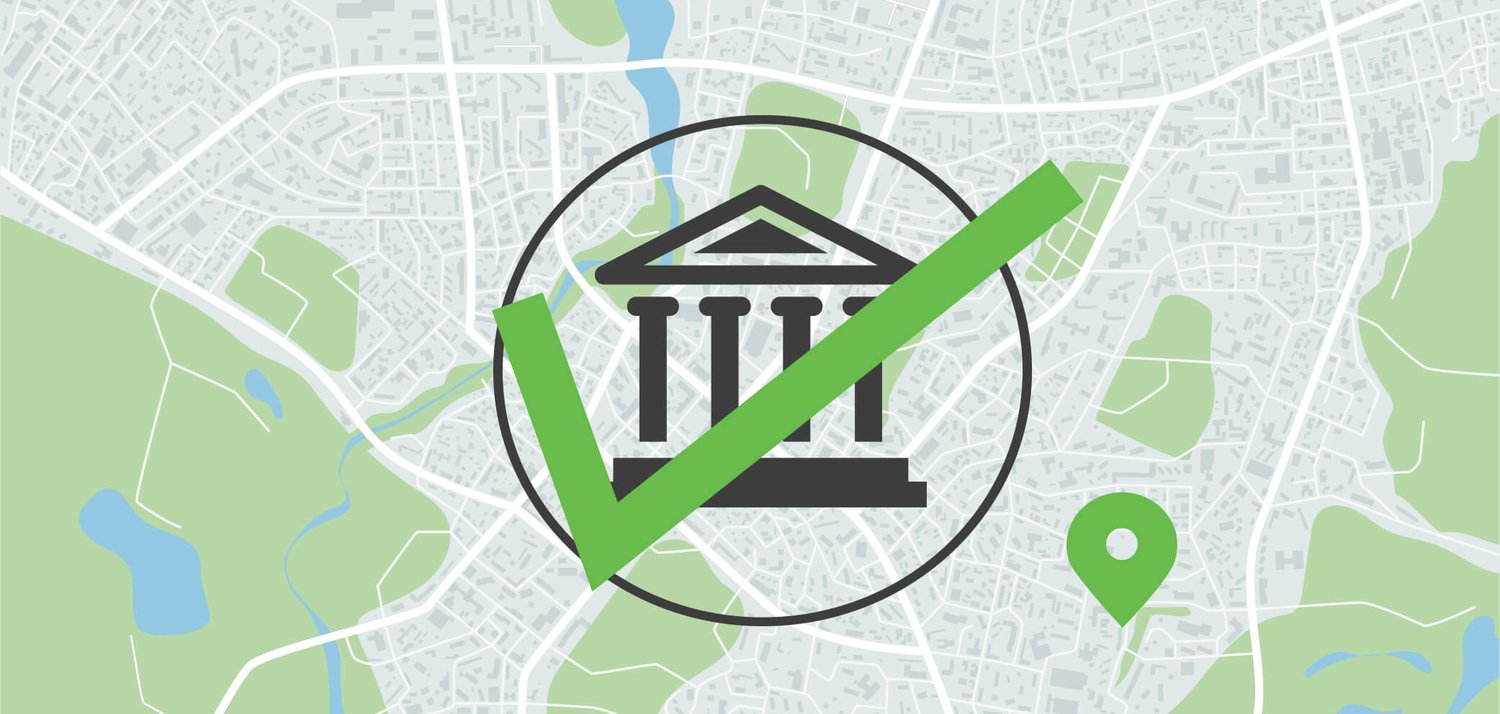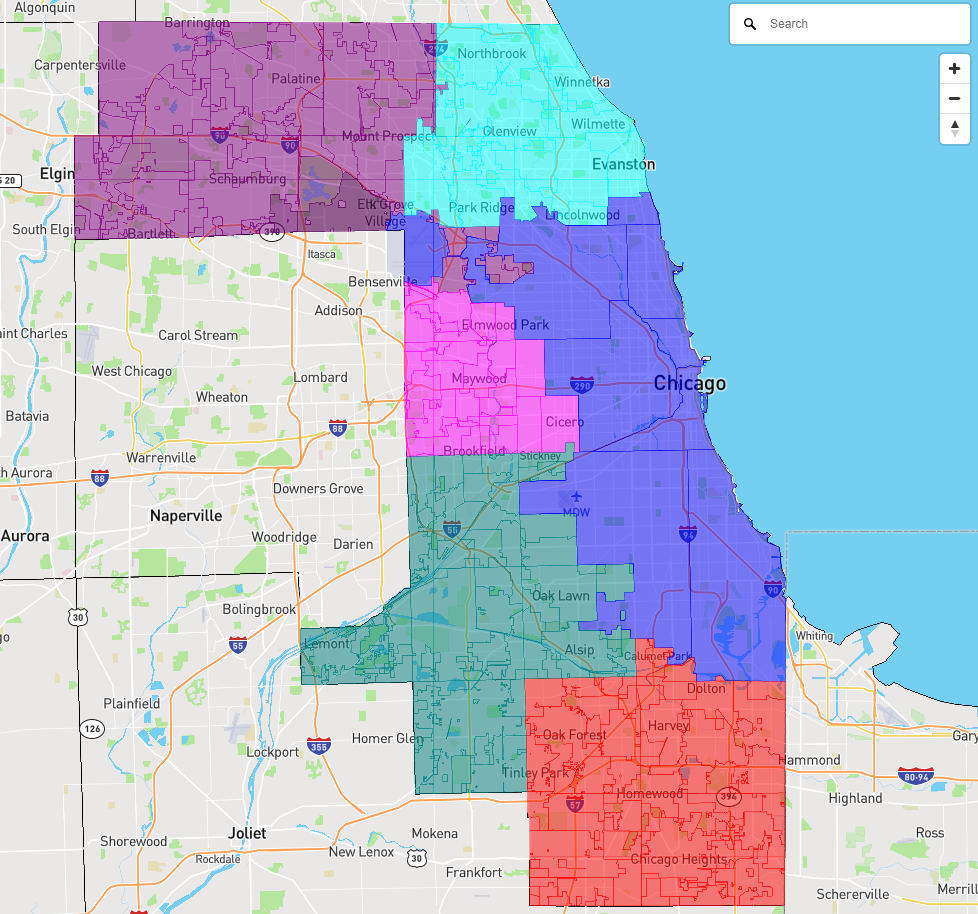When initiating a civil lawsuit, the party filing the legal documents is responsible for choosing where to file the case. Based on the case content and local regulations, they must select the court venue that has the power to decide the case — authority over the case type and the ability to pass judgment over the parties involved. Wrong choices have frustrating outcomes for the plaintiff, particularly in small claims.
If the court is not the proper venue, the defendant can request for the case to be moved or the court can dismiss the case outright. Improper selection of venue is a common enough issue that Los Angeles County spends half of its page on court venue selection emphasizing the right of the defendant to challenge venue - and the potential for the challenge to lead to its dismissal or transference to a new court. Despite the downsides, to getting it wrong, there are several easy steps you can follow to get court venue right the first time.

1. Research Applicable Local and Federal Legislation
Always make sure that you understand the regulations in place at the federal, state and local levels of your court system that could impact the venue. In small claims and especially collections cases, be certain to consider venue requirements under the Fair Debt Collection Practices Act (FDCPA). The FDCPA mandates that the court venue is local to the defendant. It is important to consider how state interpretations of those laws impact the venue. What one state considers to be close enough may not be sufficient for another state.
2. Check the Court Level For Your Suit Type and Amount
Each court system is unique and defines what cases each level in the system can hear. Depending on the state, circuit, district, municipal, justice or small claims courts can hear different civil cases depending on the dollar value of the dispute. There are certain instances where a case could be filed at a higher level district court or with a smaller court - such as small claims or justice of the peace courts. Due to the nature of the cases heard in the smaller courts, they tend to be cheaper than other courts. Strategically placing cases in a smaller court can be beneficial for managing costs when handling smaller lawsuits. The tradeoff is that smaller courts are more regionalized than their larger counterparts, so venue addresses must be assessed with a higher degree of specificity.
3. Find the Right Venue By Location
The proper venue for a civil case is the court that aligns with the location most relevant to the dispute. Depending on the civil case type, it can be the site of an incident, the site of the contractual agreement, or the residence of the defendant. After determining the most relevant location, the interpretation of venue location laws for that case type becomes paramount. Be sure to look up the rules around the case type you’re dealing with within the court system you’re filing within.
In consumer debt cases, for example, most states require the alignment of the venue address with the current defendant’s address. Determining alignment involves checking that the venue has jurisdiction over that address. In many states, this is simply a matter of checking that the counties listed in the address and the court match. In other states, there’s more granularity. In Texas, courts have subvenues and the precincts of those subvenues don’t follow county lines precisely.
To ensure that the location is within a court’s jurisdiction, confirm with the court in question. Some jurisdiction information is available online, either as a list or in the form of a jurisdiction map. When information is not readily available online, calling courts directly is the best way to ensure that you’ve got the jurisdiction right.
4. Make the Process Repeatable
It’s easy enough to do the research or make a call for a single case. However, the task of confirming the venue becomes a monumental drain on time when dealing with large caseloads. To simplify the process and reduce repetition, carefully document jurisdictions as you research them. Find the best way to record and map the information in your state or area. The technically-proficient can create guides by overlaying jurisdiction data onto a map and searching against a new address. If the task of confirming the defendant’s location and determining the proper venue is overwhelming — and the prospect of building your own tool is daunting — consider looking to a third-party tool.
5. Use A Venue Selection Tool
You can find a venue selection tool created by a third party that you trust, such as legal services providers. Some providers have tools that are available for their customers to use to check venue location. Since legal service providers develop these tools with their customers in mind, they are often easy-to-use yet specialized for the subsegment of the legal industry they operate within. The provider takes care of the legwork - contacting courts and developing district map models. All you have to do is provide them with addresses and information relevant to your case - they should be able to send you information about the right venue for your case.
ABC Legal Services, for example, offers a venue selection tool to its customers via the online dashboard. The tool helps determine the proper venue for a small claims case based on the defendant’s address and the claim amount. Additional service options allow customers to combine venue selection with a check for the best address for a defendant, and then get the documents filed and served in a seamless experience online. ABC Legal allows customers to self-serve with a tool within the dashboard or provide larger lists to confirm via an automated connection.
Get Court Venue Right
Striking the right balance between court jurisdiction, location, and costs is important for any attorney dealing with civil cases. Whether you choose to do the research, evaluation and selection process on your own or with the assistance of a venue selection tool created by a third party, following the 5 steps above will help keep your venue selection accurate and your cases moving forward in court.
To get more legal industry best practices, helpful tips, and breakdowns on the latest in legal tech, subscribe to the ABC Legal Blog or follow us on social media.
About ABC Legal
With more than 2,000 process servers across the U.S. and 75 countries, ABC Legal is the nation’s leading service of process and court filing provider, as well as the Acting Central Authority to the U.S. Department of Justice. Our digital approach saves valuable time and resources, and our cloud-based solutions are compatible for use on desktop, browser, and smartphones. Docketly — an ABC Legal subsidiary — provides appearance counsel on a digital, custom-built platform that smoothly integrates with our applications and services. Learn more at www.abclegal.com.

Written by
Heather ThomasService made simple—down the road and across the country. Join the 50,000+ professionals who trust ABC Legal for service of process.
Recent Posts
- The Art of Outsmarting: What Legal Pros Gained in San Antonio
- ABC Legal Launches “EvidenceChain™” to Advance Transparency in Legal Document Delivery
- 7 Ways ABC Legal Benefits Accounting Teams
- Streamline Civil Law Cases With Reliable Service of Process
- Insights from MTMP 2025: Legal Innovation, Connections & a Little Star Power
Subscribe to email updates
Learn More

Between the Lines: ABC Legal’s Court Venue Selection Tool

How Does Small Claims Court Work? Fundamentals for Success
.jpg?width=1246&height=842&name=iStock-524816639%20(1).jpg)
IL Supreme Court Orders 30-day Summons for Small Claims

Illinois Venue Selection & E-filing by API, Estimated Service Dates & More






